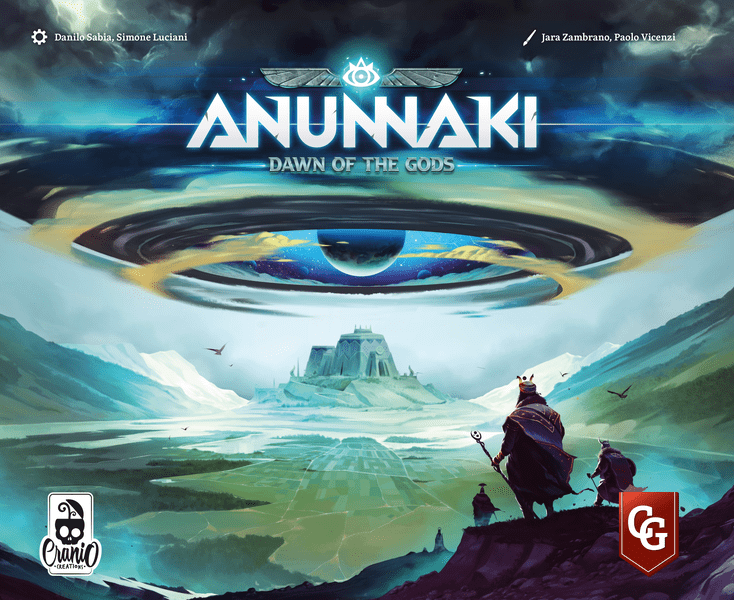Anunnaki: Dawn of the Gods (2023) Board Game
Anunnaki: Dawn of the Gods is a board game that takes players back to ancient Mesopotamia, where the Anunnaki, a group of ancient deities, have returned to Earth to reclaim their dominion. Players take on the role of powerful beings vying for control of the land, resources, and followers in order to prove themselves worthy of the gods.
Game Components of Anunnaki: Dawn of the Gods
How To Setup Anunnaki: Dawn of the Gods
Setup involves each player selecting one of four factions led by mythological figures such as Zeus, Odin, Ishtar, or Ra. Players start on their home planet and prepare to travel to Gaia. The game boards, including the home planet and Gaia, are set up with resource tokens and other necessary components. Each player places their followers, minor gods, and major god on their respective boards and receives the necessary tokens and cubes.
Gameplay Mechanics and Game Objective
Player Experience
The game offers a complex and engaging experience with variable player powers and Euro elements like progression tracks. However, it falls short in comparison to other 3.5X Euro games due to several issues, including poor component quality and design flaws. Players must navigate through a series of actions dictated by an action wheel, manage resources, and make strategic decisions to summon and activate gods.
Pros
Cons
Personal Thoughts on Anunnaki: Dawn of the Gods
**Anunnaki: Dawn of the Gods** is suited for fans of complex strategy and 4X games who are willing to overlook some significant production issues. Despite its intriguing mechanics and thematic blend of mythology and science fiction, the game’s poor component quality and design flaws make it less appealing compared to other games in the same genre. It is not a bad game, but it fails to stand out among its contemporaries.
We are supported by our audience. When you purchase through links on our site, we may earn an affiliate commission, at no extra cost for you. Learn more.

